May 21, 2019 | Iran Disinformation Project
Fars News, the Spider Net of Lies and Deception
Part One: The Men Who Built Fars News
May 21, 2019 | Iran Disinformation Project
Fars News, the Spider Net of Lies and Deception
Part One: The Men Who Built Fars News
This is the first of a series of articles on Fars News, the cornerstone of the Islamic Revolutionary Guard Corps’ (IRGC) disinformation campaign for the last two decades. The first part introduces the figures who founded and ran Fars since its creation. Subsequent articles in the series will examine specific cases of disinformation campaigns initiated and promoted by Fars News.
Introduction
Since its creation, Fars News has played a key role in promoting IRGC propaganda and waging psychological warfare against the regime’s opponents. Using its multilanguage platform and sophisticated network, Fars News’ disinformation campaign reaches across Iran’s borders, spreading rumors and lies about dissidents, human rights, labor, political activists, and intellectuals. Fars tries to silence the regime’s critics by publishing hit pieces on them, and plays a critical role in defaming dissidents before and after their arrest. It has wide access to prisons and information gathered by the IRGC. Outside Iran, Fars News publishes disinformation about the United States and its allies by infiltrating the ranks of Western journalists, academics, and policymakers and forging personal and professional relationships with them.
In the Beginning…
In 1999, Saeed Najar Nobari, the communication director of Tehran’s Attorney General Office, received a permit to start a news agency. Najar Nobari did not play a key role in shaping Fars. Fars began its activities in 2002 and Nobari left Fars in 2003 but remained an active player in the country’s media landscape. In 2008, he became the head of foreign office at the state-run Islamic Republic News Agency (IRNA) in President Mahmoud Ahmadinejad’s government. Nobari also spent three years in Berlin as the chief of IRNA. In his appointment letter, Mohammad Jafar Behdad the head of IRNA at the time, asked Nobari to launch an aggressive campaign to “raise the cost of the enemy’s propaganda war against the Islamic Republic.”
Mehdi Fazaeli
In 2003, Najar Nobari sold Fars News to Mehdi Fazaeli, Hassan Mordai Dadkhah, and Hassan Shirazi. As the first CEO of Fars, Fazaeli made Fars a key player in Iran’s media landscape. Moradi and Shirazi are two less knows IRGC-connected figures. Moradi later served as the deputy head of the Basij of University Professors.
Fazaeli is the brother of Brigadier General Ahmad Fazaeli, the former head of the IRGC’s Imam Hossein University. Fazaeli founded the Islamic Students Association in the 1990s. Fazaeli worked for Ahmad Tavakoli’ Farda Newspaper. Farda went bankrupt in less than a year. In 1999, he joined the IRGC’s Javan Newspaper and served as its political editor and editor in chief. He is a regime loyalist who routinely brags about his meeting with Hezbollah’s secretary general, Hassan Nasrallah; praises Ayatollah Ali Khamenei, Iran’s supreme leader; and denounces the United States and Israel. Fazaeli’s access to the IRGC leadership allowed him to rise in the ranks and make Fars the heart of the IRGC’s disinformation campaign. As a result, the IRGC did not have to rely on any other news agency. Under Fazaeli, Fars played a critical role in launching Ahmadinejad’s political career and helping him to secure presidency.
Bijan Moghadam was the first editor-in-chief of the Fars News Agency. Moghadam is a known principlist media figure who has held key positions in several hardline principlist media outlets. In 2005, Moghadam was tapped by then-Minister of Culture and Islamic Guidance Saffar Harandi as the managing director of the state-run Iran Newspaper. From 2006 to 2014, Moghadam served as the managing director of Jam-e-Jam newspaper, which is owned by the state-run Islamic Republic of Iran Broadcasting (IRIB). Next, he became the managing director of Alef, a popular news website controlled by the influential hardline politician and former presidential candidate Ahmad Tavakoli.
In 2007, Fazaeli resigned after a successful tenure. The news site Tabnak, owned by Mohsen Rezaei, a former IRGC commander, argued that Fazaeli’s resignation was the result of a personnel change at the top of the IRGC’s chain of command: Mohammad Ali Jafari had replaced Yahya Rahim Safavi.Despite the official independence of Fars from the IRGC, IRGC leadership had significant influence in Fars and dictated its direction and management. Tabnak revealed that the IRGC was funding Fars News, one of the worst-kept secrets in Iran.
From 2009 to 2015, Fazaeli was the managing director of Soroush Publication, an IRIB-owned company. Since then, Fazaeli has been a well-connected pundit. When Khamenei published his widely publicized statement on the second step of the Revolution, Khamenei’s manifesto on what the regime should do over the next few decades, it was Fazaeli who went as the pre-prayer speaker at Tehran’s Friday prayers to explain what it means, a strong signal of his close ties to Khamenei’s office.
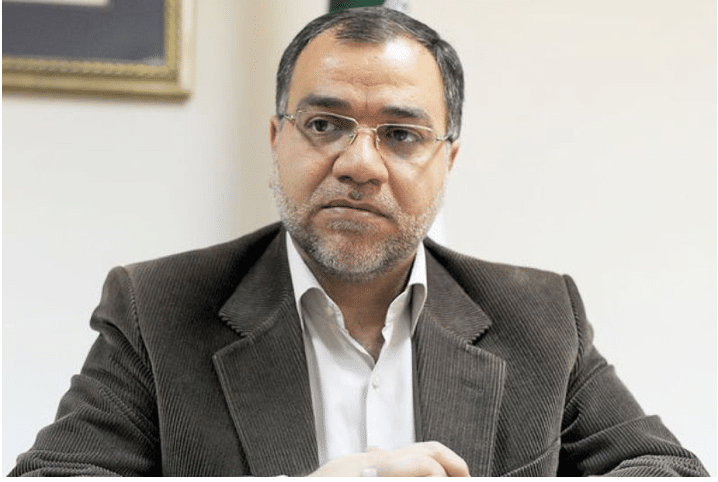
Mehdi Fazaeli (Afkar News)
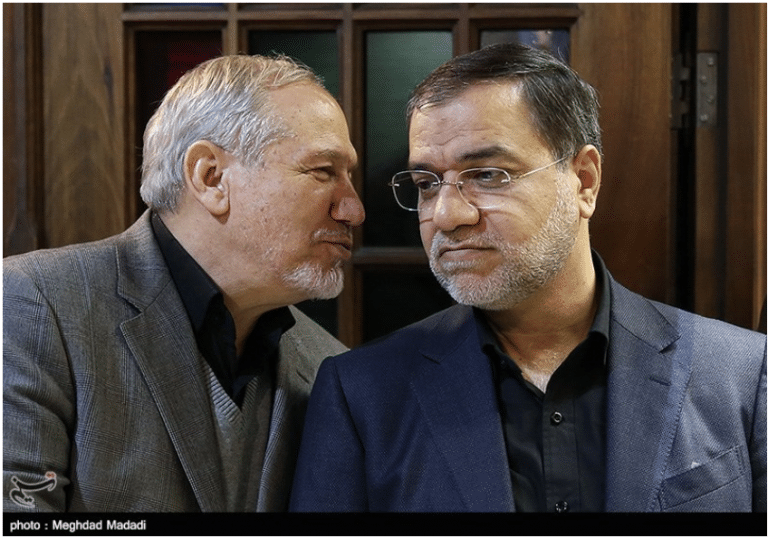
Mehdi Fazaeli and General Yahya Rahim Safavi (former commander of the IRGC) (Tasnim News)
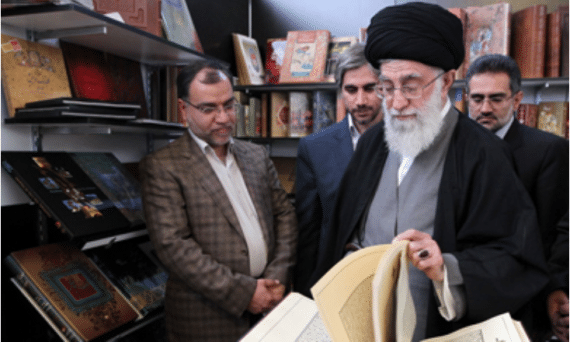
Mehdi Fazaeli and Seyyed Ali Khamenei (Porseman)
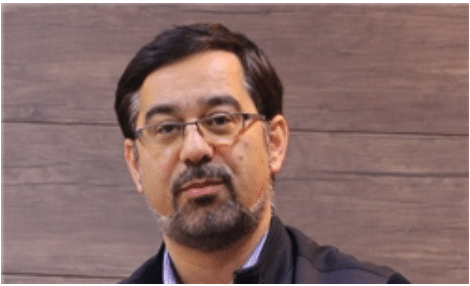
Bijan Moghadam (Fars News)
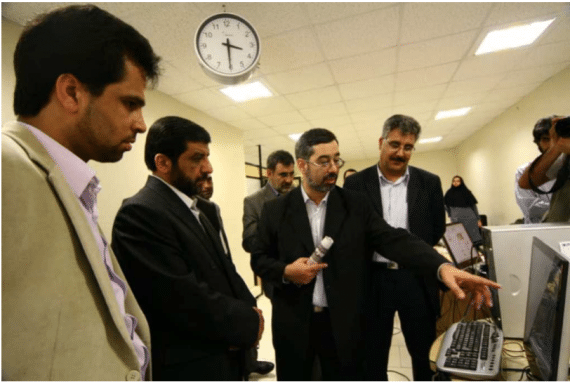
Bijan Moghadam and Ezatollah Zrghami (former head of IRIB) (News-Bazar)
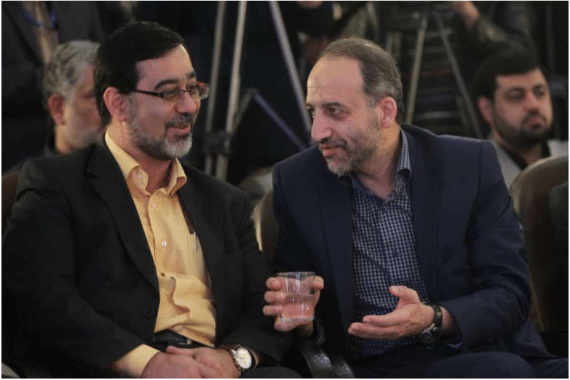
Bijan Moghadam and Mohammad Sarafraz (the ousted chief of IRIB) (The Islamic Republic News Agency)
Hamidreza Moghadamfar
Moghadamfar was a former member of the now-defunct Islamic Republic Party. Founded by Khamenei, former Chief Justice Mohammad Beheshti, and former President Akbar Hashemi Rafsanjani, and many other early leaders of the Islamic Republic, the party was the main hub of pro-Khomeini politicians. It successfully destroyed Khomeini’s rivals but was disbanded in 1987. Moghadamfar, currently an advisor to the commander of the IRGC, was Fars News CEO from 2007 to 2011 and director of the cultural-social affairs at the IRGC between 1390 and 1393. Moghadamfar is a member of the IRGC, and his latest known rank at the IRGC is second brigadier general.
Moghadamfar led Fars News at a critical point. Fars was at the forefront of psychological warfare against the regime’s opponents after the Green Revolution in 2009. For example, Fars along with the IRIB pushed the false narrative that Neda Agha Soltan, a young Iranian women shot and killed by security forces during the 2009 protests, was murdered by foreign intelligence services in a complex operation. Her death, recorded by smartphone, became a symbol of the regime’s brutality and repression.
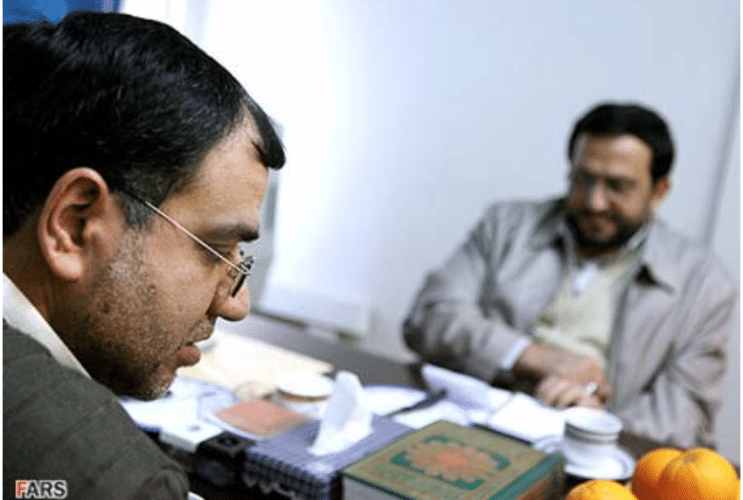
Mehdi Fazaeli and Hamidreza Moghadamfar (Tabnak)
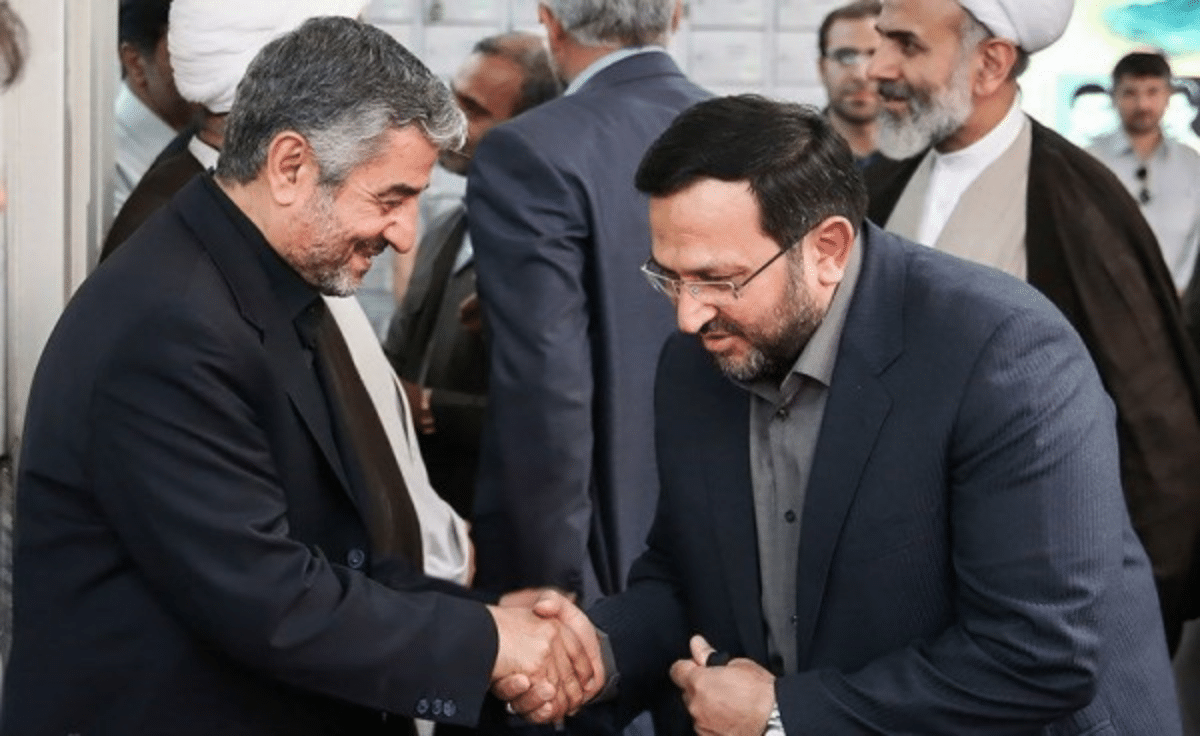
Hamidreza Moghadamfar and General Mohammad Ali Jafari (Saham News)
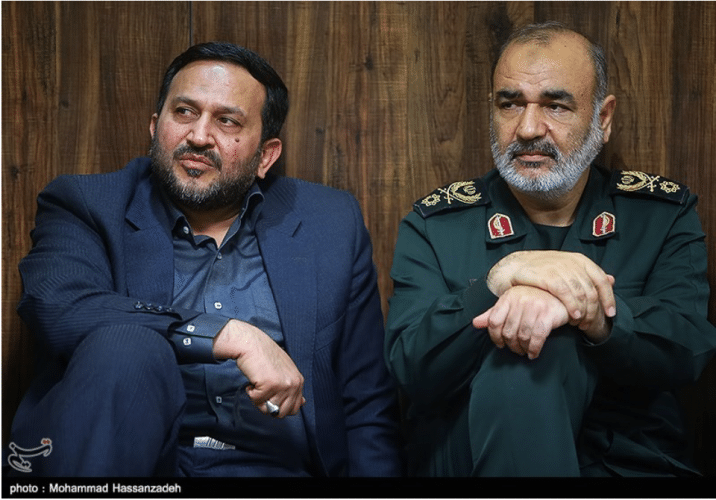
Hamidreza Moghadamfar and General Hossein Salami (Tasnim News)
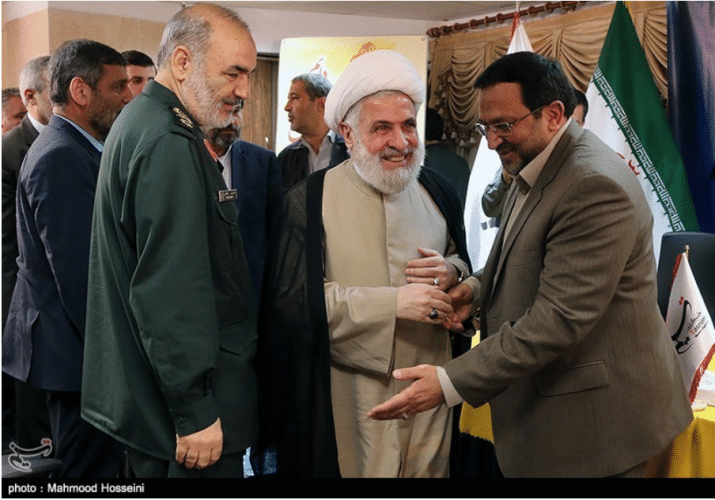
Hamidreza Moghadamfar, General Hossein Salami (Commander of the IRGC), and Sheikh Naeem Ghassem, deputy secretary general of Hezbollah (Tasnim News)
Seyyed Nizam-al-Din Mousavi
In 2011, Mousavi – then the head of the political office of the Basij Student Organization at the University of Tehran – replaced Moghadamfar. Mousavi was a veteran of the principlist media echo chamber. Prior to joining Fars, he worked at Kayhan, Javan, and IRIB. Mousavi was not merely a media executive but an active member of the regime’s repression machine. According to Alireza Zakani, a former chief of the Basij’s student organization, Mousavi actively participated in the efforts to suppress the 1999 student uprising in Tehran. Mousavi expanded Fars operation at the local level.
Under Mousavi, Fars played a significant role in selectively exposing cases of corruption. Fars used its access to secret information to expose IRGC rivals while never exposing corruption associated with the IRGC itself. During the last two years of Ahmadinejad’s presidency, when Ahmadinejad lost his position as Khamenei’s favorite, Fars News led the charge against Ahmadinejad’s team and published various reports targeting the members of his team. In 2011, Mousavi cheered the arrest of Ali Akbar Javanfekr, Ahmadinejad’s chief media advisor and head of the IRNA. Javanfekr, a member of the upper crust of the hardline journalists, had years of personal relation with Ali Khamenei. Javanfekr’s arrest was a strong signal to Ahmadinejad and his supporters that their revolutionary past will not save them from persecution. When Rouhani came to power, Fars News published investigative reports on corruption among members of Rouhani’s cabinet, including his brother.
Mousavi also invested significantly in Fars News’ foreign language operation. Mousavi used Fars to launch the careers of many Iranian conspiracy theorists and create a network of anti-Israel, connect anti-U.S., and pro-Tehran figures outside of Iran. Under Mousavi, Fars heavily covered people such as Hassan Abbasi and Ali Akbar Raeghipour. The former calls himself the Kissinger of Islam while the latter calls himself a warrior in the holy struggle against Zionism, humanism, and freemasonry. Mousavi has lent his support to the New Horizon Organization, which hosts international conferences aimed at collecting intelligence and recruiting foreign agents for the IRGC Quds Force, and its chairman, Nader Talebzadeh. The United States sanctioned both in February 2019.
Mousavi also pushed principlists to reach out to the younger generation. Backed by the IRGC, Mousavi tried to recruit celebrities to support the IRGC and its policies, such as the intervention in Syria. He even managed to get Amir Hossein Maghsoulou, known as Amir Tataloo, an Iranian singer popular among teens, to support Ebrahim Raisi in his 2017 presidential bid.
In 2017, Payam Tirandaz replaced Mousavi as the new CEO of Fars News. Mousavi joined Raisi’s team as the head of the public relation office of Astan Quds Razavi, a foundation tied to Khamenei. Raisi, who was tapped this year as the chief justice of Iran, is the frontrunner to succeed Khamenei as the next supreme leader of the Islamic Republic.
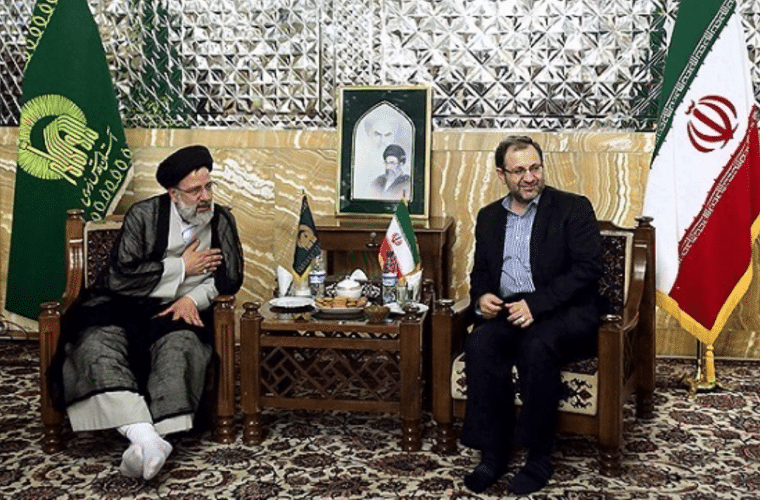
Seyyed Nizam-al-Din Mousavi and Ebrahim Raisi (Afkar News)
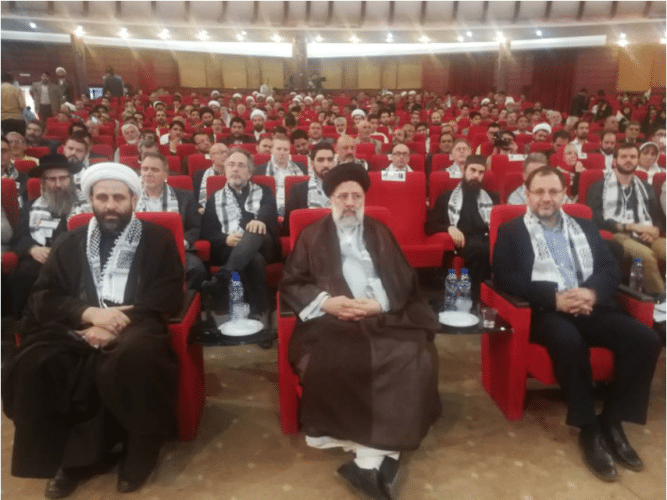
Mousavi and Raisi at the New Horizon Conference (New Horizon)
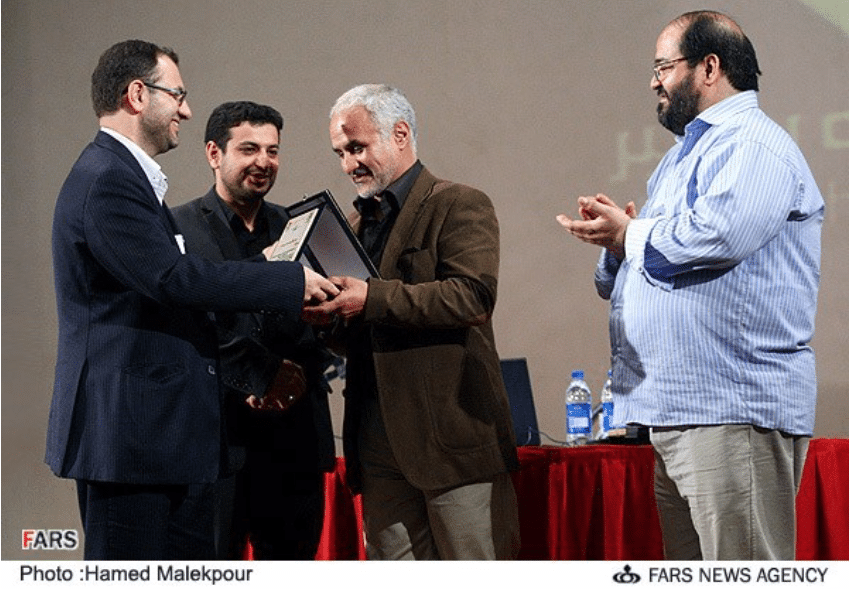
Mousavi, Hassan Abbasi, and Ali Akbar Raeghipour (Halazoon Magazine)
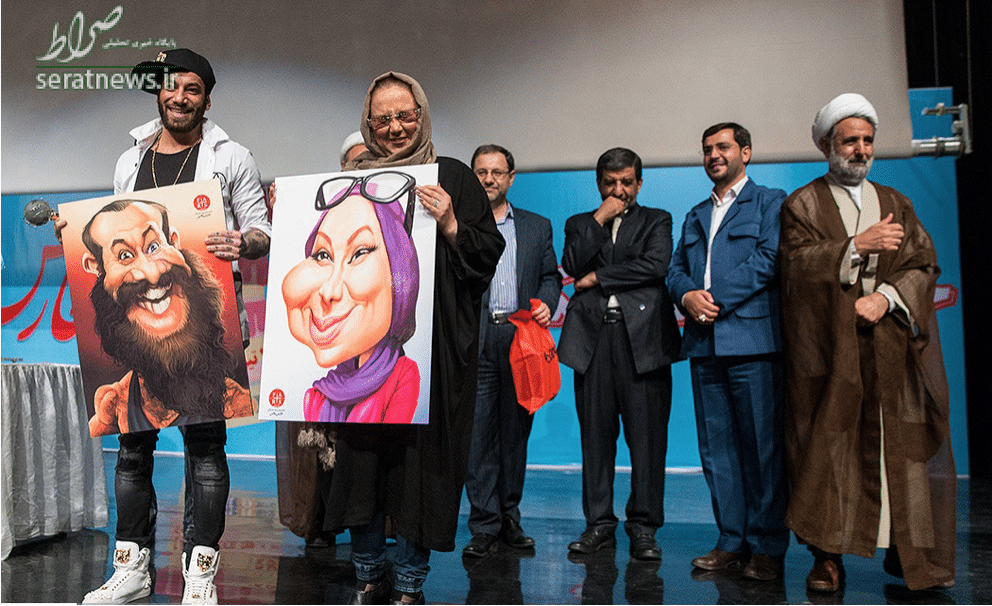
Amir Tataloo, Mousavi, Ezzatollah Zarghami (former head of IRIB), and Mojtaba Zolnour (hardline member of parliament and the supreme leader’s former deputy representative to the Islamic Revolutionary Guard Corps) (Ba-Khabar)
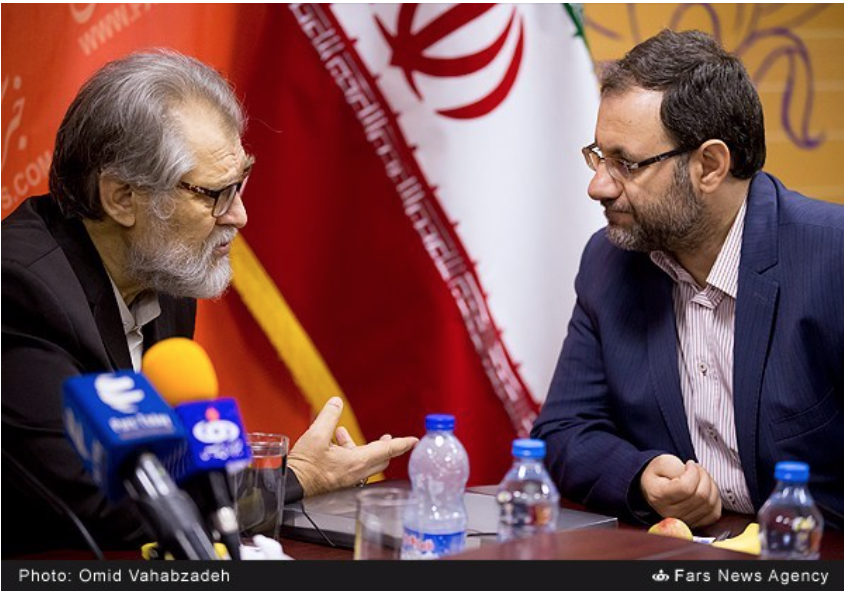
Mousavi and Nader Talebzadeh (Fars News)
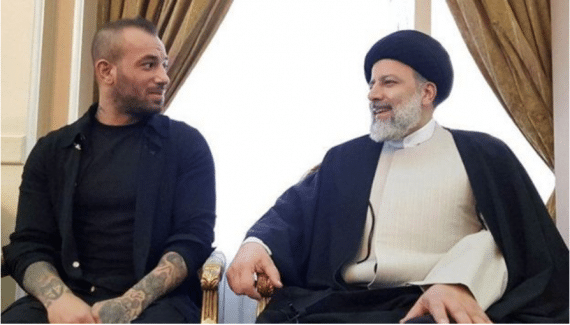
Amir Tataloo and Ebrahim Raisi (BBC Persian)
Payam Tirandaz
Tirandaz became CEO of Fars News in 2017. Tirandaz, is a veteran of Basij. He is one of the co-founders of Shabake Khabar Daneshjo, a student news organization backed by Basij. In the 2000s, Shabake Khabar Daneshjou played a critical role in the regime’s disinformation campaign against Iran’s student movement. Tirandaz also has also worked for IRIB. Under Tirandaz, Fars News continues on the path paved by Mousavi as the key distributor of the disinformation campaigns planned by the IRGC.
Conclusion
Almost all the men who built and ran Fars News have been members of the IRGC. The agency’s CEOs have come and gone, but its mission has remained unchanged: defending the IRGC from the perceived enemies of the revolution. Fars News revolutionized the revolutionary guards’ propaganda and disinformation operation. It also radically altered the county’s media landscape by making the IRGC a major player and launching the career of thousands of hardline revolutionary journalists. The rise of Revolutionary Guards gave birth to Fars News, and Fars’ growth boosted the IRGC’s rise.